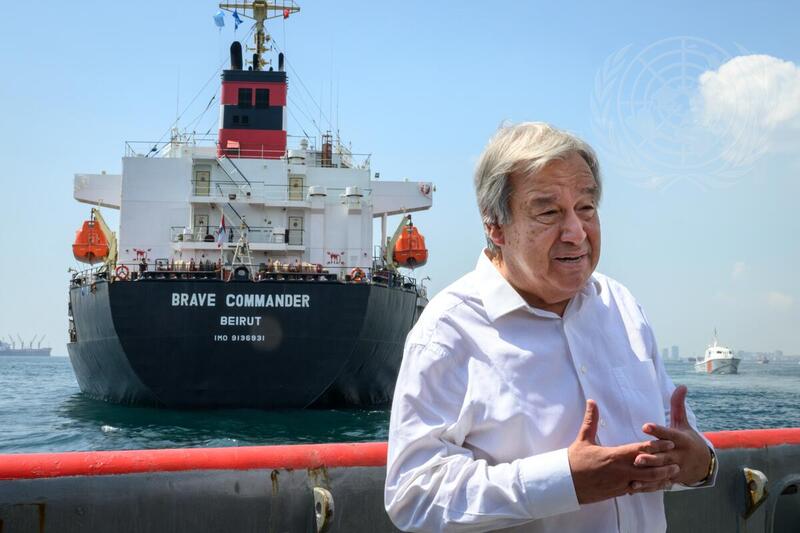New York, November 3 – The United Nations said the Black Sea Grain Initiative is “making a difference” as it has blunted rising food prices after 10 million metric tons of wheat and other foodstuffs have been shipped from Ukraine to dozens of countries in the past three months.
“Despite all the obstacles we have seen, the beacon of hope in the Black Sea is still shining,” U.N. Secretary-General Antonio Guterres told journalists at U.N. headquarters in New York. “The initiative is working. “
“Over the past few days, I believe the world has come to understand and appreciate the importance of the Black Sea Grain Initiative,” he said, adding that the initiative has helped to ease food prices, reduce the risks of hunger, poverty and instability.
The initiative brokered by the U.N. was signed by Turkeye, Russia and Ukraine in July and implemented through a Joint Coordination Committee (JCC) in Istanbul. It allowed shipments through a Black Sea corridor of Ukraine’s foodstuffs, particularly millions of tons of Ukraine’s wheat stuck at Crimea ports under the war.
The initiative, expected to be renewed on November 18, was briefly halted after Russia decided to suspend its cooperation last week. Russia reversed its decision on November 1, however.
Wheat and barley from Russia and Ukraine accounted for about 30 per cent of total world exports and maize and sunflower oil from the two countries maintain a significant shares on the markets for those commodities.
Guterres, who has been involved in non-stop negotiations, said the initiative has now “fully resumed” and he urged all parties to focus on renewing and fully implementing it and to remove all remaining obstacles to export Russia’s food and fertilizers.
“I am fully committed – along with the entire United Nations system – to the achievement of both these essential objectives,” he said.
Grain deal brings down global food prices
Rebeca Grynspan, Secretary-General of the U.N. Conference on Trade and Development told the UN Security Council on October 31 that over 1.6 billion people in 90 countries were in a “state of severe vulnerability to rising poverty, hunger and debt,” caused by a combination of the Covid-19 pandemic, the war in Ukraine and climate change.
But she said food prices came down after the initiative began working in early August this year. Citing the Food and Agriculture Organization, a U.N. agency based in Rome, Grynspan said the FAO Food Index has declined by about 16 per cent and according to World Bank models, the decline may have prevented over 100 million people from falling into poverty.
(By J. Tuyet Nguyen)
United Nations correspondent journalists – United Nations correspondent journalists – United Nations correspondent journalists – United Nations journalism articles – United Nations journalism articles – United Nations journalism articles – United Nations News – United Nations News – United Nations News

